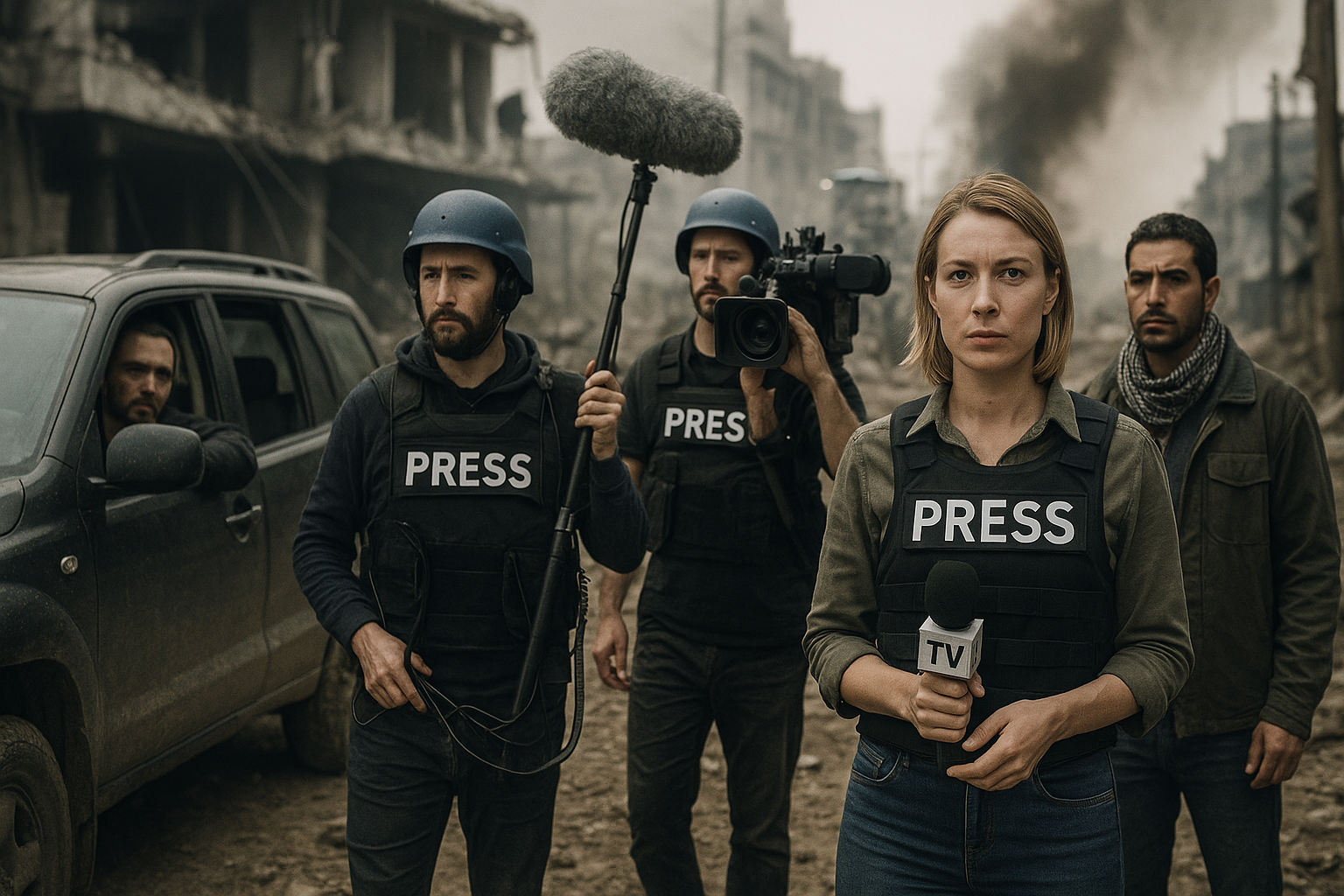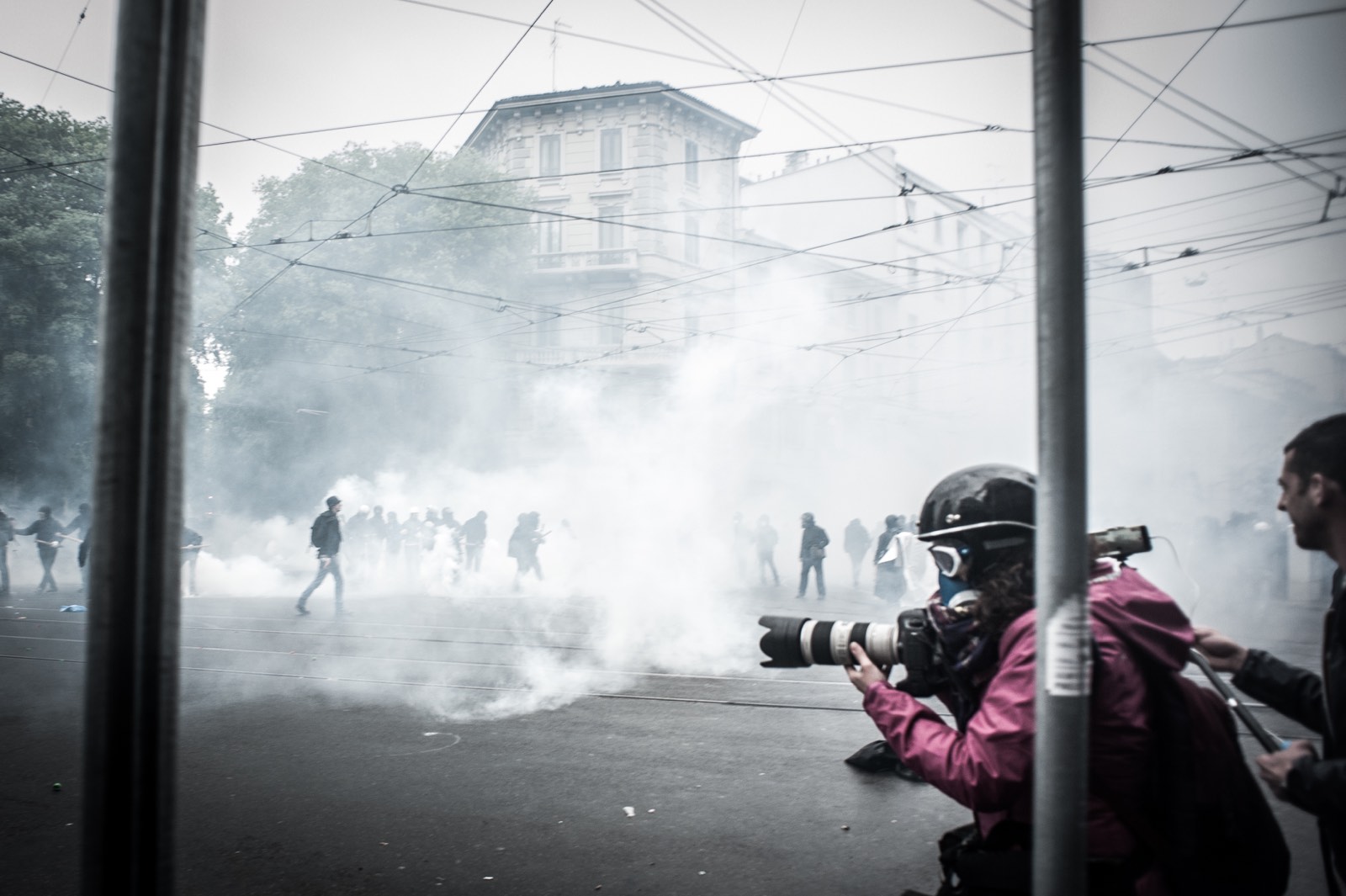Media Under Fire: Why Journalists in Conflict Zones Need Specialist Insurance Built for Real Threats

Introduction: The New Frontline – Where Journalism Meets Hazard
Journalists don’t just report on danger; they often live it. Every day, reporters, camera operators, producers, and support crews deploy to Israel, Gaza, the West Bank, Ukraine, Sudan, and scores of other flashpoints—places where rapid escalations, indiscriminate fire, and shifting political risks are routine. Many of these assignments are essential: without eyewitness reporting, the world wouldn’t see the truth. But the risks have never been higher—and the business-as-usual insurance policies issued to holidaymakers or office-based professionals are catastrophically inadequate.
If you’re responsible for deploying journalists, or if you’re a field reporter yourself, this is your reality: standard travel insurance will not get you out of a war zone. But there are specialist insurance products, including those offered through insuranceforthemedia.com, that are designed for exactly this challenge—not just for evacuation, but for survival.
The Gap in Coverage: Where Standard Policies Fail
Most journalists have a story—even if it’s not yet theirs. You know the one: a local fixer falls ill, but the insurance hotline says, “We don’t cover pre-existing conditions.” A correspondent needs evacuation, but the underwriters won’t send help—because “war is excluded.” A crew’s equipment is looted, but the policy doesn’t cover “civil unrest” or “acts of war.” Every such case is a warning: standard insurance is not designed for the realities of conflict journalism.
Let’s be blunt: mainstream insurance treats war zones as “exclusions,” not “destinations.” If you’re working in Gaza, the West Bank, or inside Israel during a crisis, most travel and business policies simply won’t respond—no matter how acute the need. This isn’t a minor administrative hiccup; it’s a lethal gap in protection.
Consider the scenario: You’re trapped in a city under bombardment, with shelling audible just blocks away. You call your insurer, desperate for evacuation. The answer? “Sorry, we can’t help you here” or “That’s specifically excluded”—all while you’re watching every second count. There’s no ambulance, no rescue, and certainly no guarantee of a safe return home. This is what it means to be left behind by the fine print.
The Toll of Being “Uncovered”
It’s not just the immediate danger—being uninsured in a hostile environment corrodes trust, morale, and mental wellbeing. Journalists who know their coverage is threadbare, or nonexistent, operate under a unique psychological strain. There’s the fear of letting family down, of becoming a statistic, of joining the list of reporters who ventured into the unknown and never came home.
For news managers, the risk is reputational and operational. How do you explain to a family or a newsroom that you sent someone into harm’s way without the right safeguards? How do you recruit and retain top talent when potential hires know you can’t promise real protection? And how do you plan for continuity when one casualty—physical, psychological, or financial—can cripple a team?
What Specialist Insurance for Journalists Actually Provides
Thankfully, insurance tailored for journalists—like that available through insuranceforthemedia.com—addresses these gaps directly.
Evacuation That Works—Even Under Fire
Most travel insurance offers only “medical evacuation” and only for specific medical emergencies, not for security threats. Specialist policies for journalists cover medical evacuation and security extraction—getting you out whether you’re injured, trapped, or simply at acute risk because the situation has deteriorated beyond any rational expectation of safety. This can mean air ambulances, but it can also mean helicopters, armoured vehicles, or discreet overland exfiltration—whatever it takes.
No Region Off-Limits
Unlike standard insurance, which often voids coverage in areas subject to government travel warnings, specialist policies are explicitly designed for war zones, active conflicts, and high-risk environments. This is critical in regions like Gaza or the West Bank, where risks change by the hour and official advisories are the norm, not the exception.
Comprehensive and Rapid Response
From accidental death and disablement benefits to emergency repatriation, specialist cover is not limited by fine print or arbitrary exclusions. It includes:
- 24/7 global support and claims handling: When things go wrong in the field, you need someone on the line who understands war zones, not just paperwork.
- Cover for acts of war, civil unrest, and terrorism: These are not “exclusions”—they are the core reason for the policy in the first place.
- Equipment and liability cover: Loss of kit, legal liabilities, and even kidnap and ransom risks can be included, depending on the policy.
By Journalists, For Journalists
Some of the best policies have been developed in close consultation with experienced field journalists and media organisations. This isn’t just about ticking legal boxes; it’s about real-world resilience.
Case Studies: When Specialist Insurance Made the Difference
Evacuation from a Besieged City (Hypothetical Example Based on Real Risks)
Imagine this: You’re filing live reports from Gaza City when a new escalation leaves your neighbourhood under fire. Communications are patchy, roads are blocked, and the local hospital is overwhelmed. With a specialist policy, you call your insurer’s crisis hotline. Within hours, a secure land convoy is arranged, extracting you and your team to a safer area, and eventually to the border. Medical support is on standby if needed, and the policy covers every stage—no quibbles, no bureaucratic delays.
Without specialist cover? You’re on your own. No rescue, no support—just the grim mathematics of risk.
Rapid Medical Repatriation in the West Bank
A freelance photographer working in the West Bank suffers a serious injury in a riot. Emergency medical evacuation via helicopter is required to get them to advanced care in Israel—a move many standard insurance providers would either refuse or delay, citing “civil unrest exclusions.” With a specialist media policy, the evacuation is authorised immediately, the costs are covered, and the photographer receives care without delay—the difference between recovery and tragedy.
The Wider Picture: Duty of Care and Organisational Responsibility
For editors, news directors, and humanitarian leaders, sending people into danger is never an easy decision. Duty of care is not just a legal requirement—it’s a moral imperative. Specialist insurance is a cornerstone of this responsibility, but it must be matched with training, pre-deployment briefings, and realistic risk assessments.
Hostile Environment Training
Nobody should deploy without recognised hostile environment training (HET). This is not just about first aid or digital security—it’s about understanding how to recognise, avoid, and mitigate risk in real time. HET saves lives, but it also intersects with insurance: many specialist providers require or recommend it as a condition of coverage.
Crisis Preparedness and Mental Health
Specialist insurers often offer support that goes beyond the purely financial. This can include access to psychological services, post-deployment support, and even kidnap response teams. For newsrooms and NGOs, this is invaluable—not just for operational continuity, but for staff welfare and long-term resilience.
The Cost of Cutting Corners
It’s tempting, especially for freelancers and smaller agencies, to economise on insurance. But the cost of being uninsured—or underinsured—is measured in lives, careers, and reputations. The industry has seen too many stories of talented reporters left with crippling medical bills, or newsrooms facing lawsuits after a death in the field. These are not hypotheticals; they are regular occurrences.
The IFJ’s campaign for “by journalists, for journalists” insurance is a direct response to this reality. Their research shows that many media professionals—especially freelancers—go without any insurance at all, simply because standard products are too expensive, too restrictive, or simply unavailable. Specialist insurers like insuranceforthemedia.com are filling this gap, but the message has yet to reach every editor, every field producer, and every lone reporter.
The Changing Landscape: Media Insurance in 2025 and Beyond
The risks faced by journalists are evolving. Digital harassment, doxxing, and cyber threats are now part of the landscape, alongside traditional battlefield dangers. Specialist insurers are responding—offering policies that cover not just physical risks, but also digital security, legal support, and even family evacuation in the event of a threatened journalist.
For organisations deploying teams to Israel, Gaza, and the West Bank, the insurance conversation is no longer optional. It’s a strategic necessity—a core part of any meaningful duty of care. The best policies are now modular and flexible, allowing newsrooms, NGOs, and agencies to tailor cover to specific assignments, teams, and threats.
Making the Right Choice: What to Look For in a Specialist Policy
If you’re evaluating insurance for journalists or media teams, here’s a checklist for what matters most:
- Global coverage, including war zones and high-risk areas—no exclusions for “military action” or “civil unrest.”
- Rapid, expert-led crisis response—24/7 hotlines staffed by people who understand conflict zones, not just call centres.
- Medical and security evacuation—not one or the other, but both, with no quibbles over the cause of the crisis.
- Cover for equipment, liability, and even kidnap & ransom—if you’re in a hostile area, these are real risks, not hypotheticals.
- Affiliation with media industry bodies—look for policies developed with input from the IFJ or similar organisations.
- Transparent, jargon-free policy wording—if you can’t understand the terms, neither will your team in the field.
- Support for mental health and post-crisis reintegration—the best insurers recognise that trauma doesn’t end when you leave the field.
Conclusion: Insurance as an Enabler, Not an Afterthought
Insurance is not just about compliance; it’s about empowerment. For journalists, it’s the difference between chasing a story and being chased by a warzone. For newsrooms and NGOs, it’s the foundation of duty of care—a non-negotiable standard for anyone sending people into harm’s way.
Standard policies are not built for conflict zones. Specialist insurance is. The right cover doesn’t just tick a box—it saves lives, preserves careers, and ensures that the truth can still be told, even from the world’s most dangerous places.
Protect Your Teams—Protect the Story
If you’re responsible for journalists, fixers, or media teams—or if you’re in the field yourself—don’t leave safety to chance.
✅ Get a quote for specialist media insurance
✅ Contact our team for tailored advice
The story matters. So do the storytellers. Let’s make sure they’re covered.



